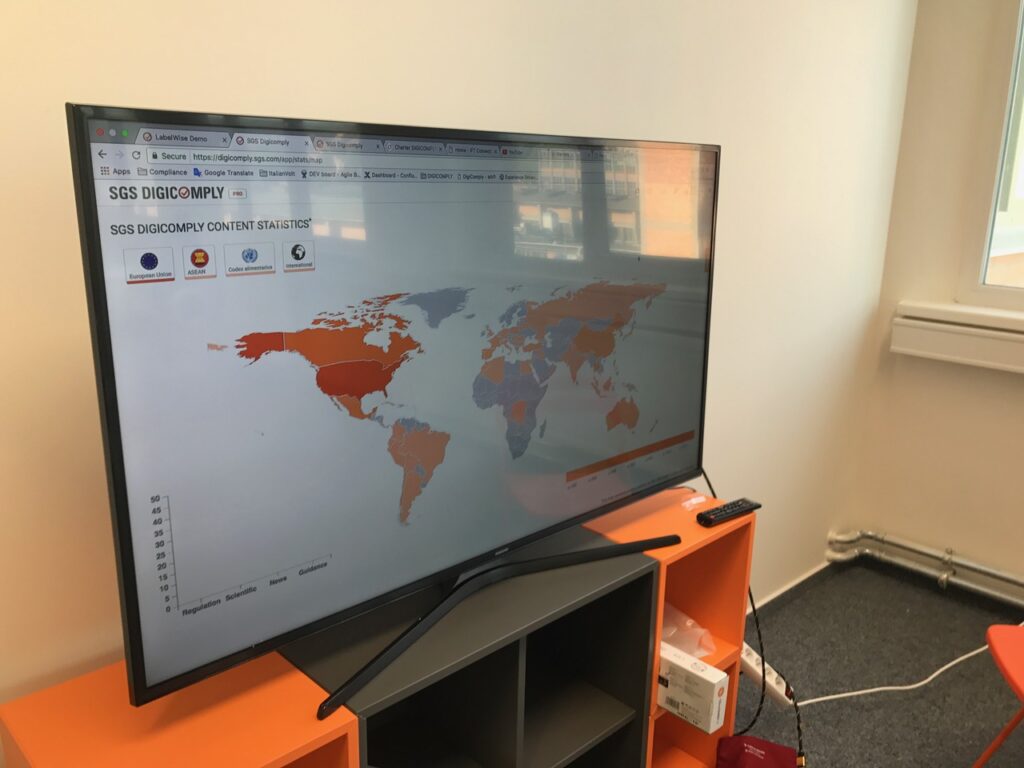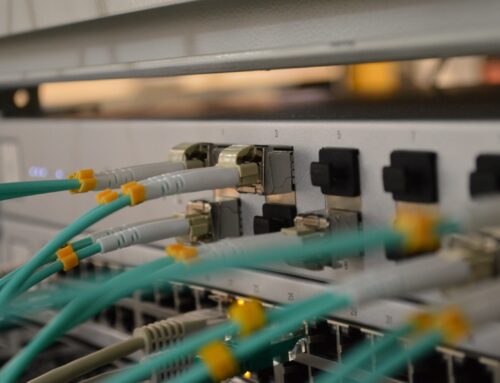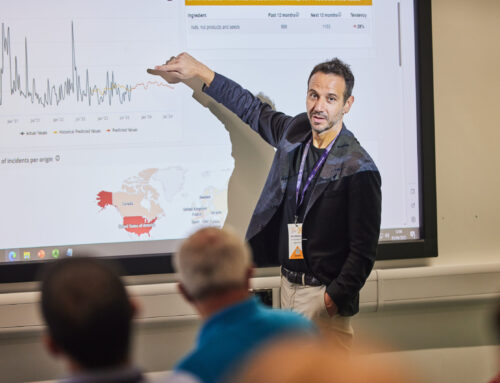An Italian living in Switzerland. The CEO of a company that is so much alike ours. I’ve watched him observing for hours, collecting and processing information before he talks or acts. I think that these are signs of a very disciplined and intelligent person – that is, the type of guy that would aim for a Guinness World Record on the longest journey by electric motorcycle.
Nicola Colombo is Global Head of Digicomply at SGS and CEO of C-LABS. His bio describes him as a passionate entrepreneur in the Digital Industry. Through various systems and solutions, he has helped hundreds of food companies all over the world transform their processes and deliver better and safer products to the market. In 2016, he funded C-LABS, now part of the SGS Group, that delivers innovations in the regtech industry. He is leading SGS DIGICOMPLY, an AI-based platform that supports the food industry in managing food safety risks and ensuring compliance.
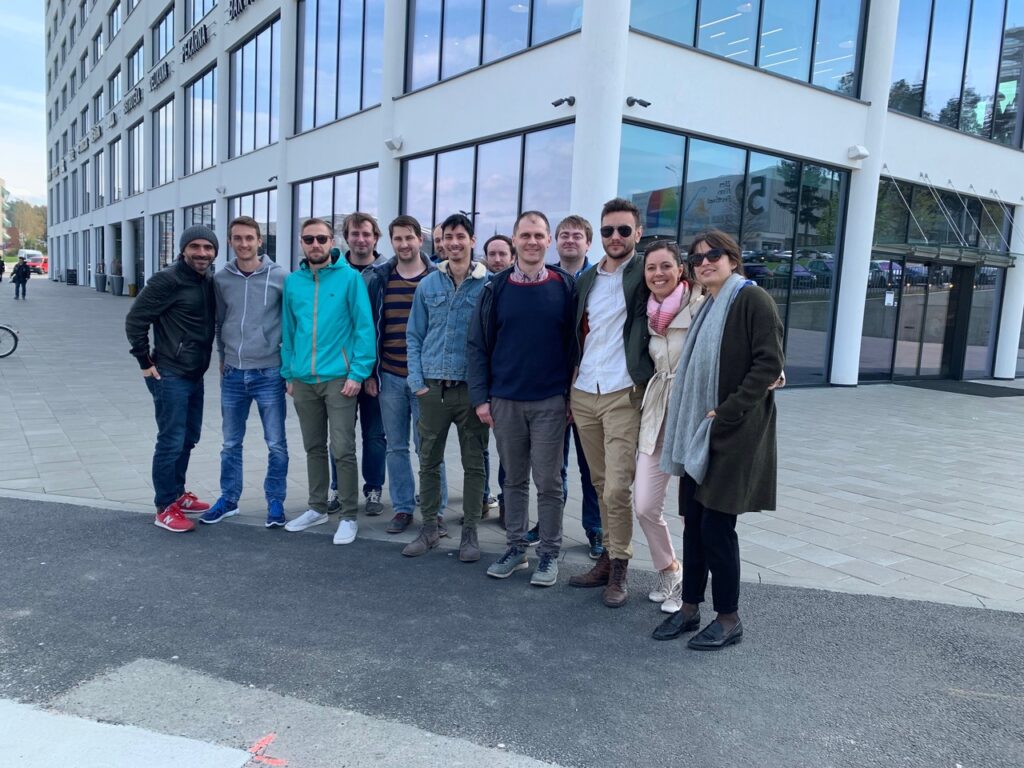
Nicola has substantial expertise in business and software development applied to food safety and compliance, but also a passion for motorcycles, challenges and adventures. In 2013, he travelled his Electric motorcycle across Asia from Shanghai to Milan achieving a Guinness World Record and this research trip produced several publications on sustainability of the food chain.
Nicola, many people think that COVID-19 accelerates the digital transformation of the food supply chain. What is your opinion? Which changes do you see coming in the market?
At the macro level, and not only the supply chain related, I see that COVID-19 is the first issue in a sequence of three of what can be seen as 3 major tsunamis that are approaching the global economy – and probably the smallest one.
COVID-19 has already impacted the supply chains. We have seen shortage of meat in USA, significant price changes in commodities that trigger more potential fraud risks, policies that gets adapted to give more freedom in ingredients changes are just a few of the effect of this wave. Moreover, the ongoing changes on retails have been accelerated, consumers doesn’t want to queue any longer at the cashier with risk of being infected, so opting more for delivery, or even drive in pick-up is a strong trend now.
The second tsunami, is the recession we are entering into. In the USA, we are seeing the highest unemployment numbers, even more than during the great recession, China has reduced GDP significantly, with the worst outlook since the last 20 years. And finally Europe, the recession, maybe at different speed between countries, it is happening.
Last tsunami, the climate change: supply chains are already affected and will be exponentially affected in the coming years, just think looking at grains harvest being compromised, with temperatures going toward 50 Celsius in several countries there is no crop that can survive.
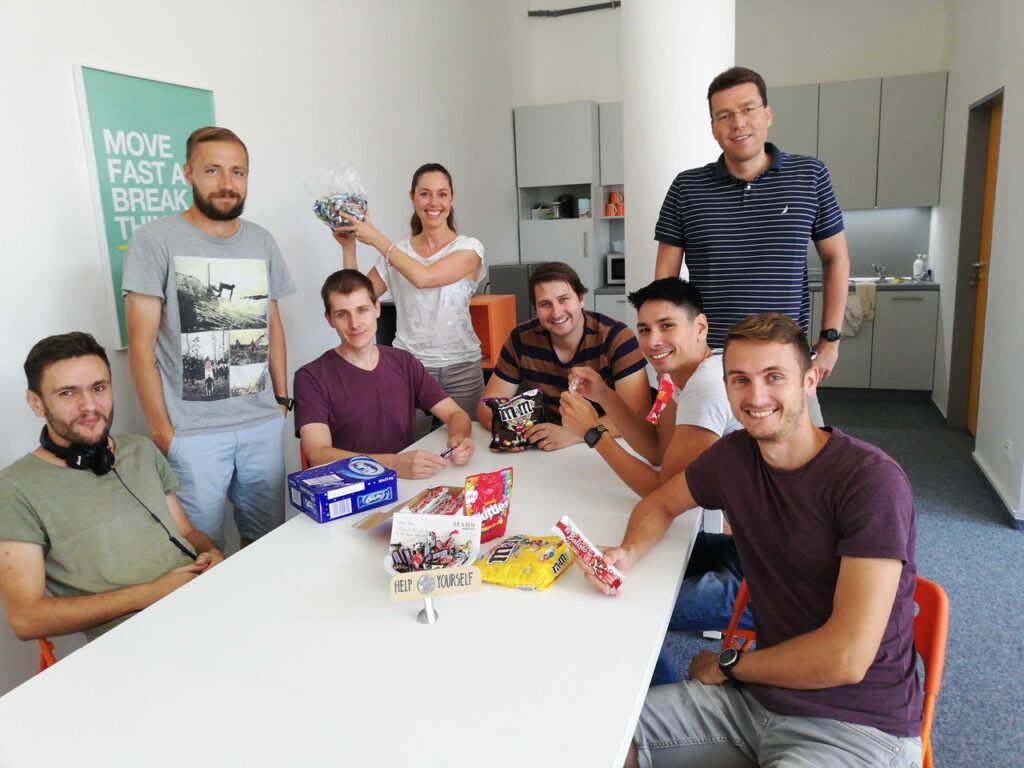
What do you hear from your clients? Which needs are they highlighting during this period?
What I am hearing from clients is that they are trying to adapt supply chains, from a model where sourcing comes from the best places which can give best value for money, to a more decentralized sourcing, with locally produced trend picking up. We also see clients securing stocks of certain ingredients but also equipment, think about packaging machinery, are mostly sourced from Northern Italy, centralization that poses a big risk considering that is one of the region in the world worst affected by COVID-19.
How do you respond to these needs? What is your company doing differently to serve your clients better?
Well, we are already in the digital space, so our offering is already kind of “new normal” ready, but what is important at this time is that we need to listen even more, adapt and support this transition in the industry with swift changes imposed by economic turmoil and policy makers that will embrace more and more trading wars and local economies protections.
In your opinion, what is the digital technology that will be more extensively adopted by the market during the next 12 months?
For sure remote inspections, connected sensors and any communication solution that facilitate the new way of working are on the mainstream.
